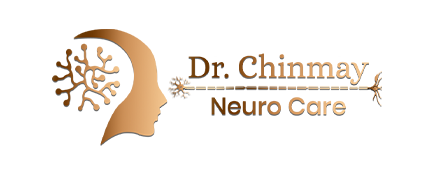Headaches are a widespread health concern that impact millions of people across the globe. While most headaches are harmless and temporary, some can be a sign of an underlying neurological condition. One of the most common yet misunderstood types of headaches is a migraine. Many people struggle to differentiate between a regular headache and a migraine, leading to ineffective treatment and prolonged discomfort. Understanding the differences between the two can help in seeking the right treatment from experts like Dr. Chinmay at Dr. Chinmay’s Neuro Care Clinic in Balewadi-Baner, Pune, one of the best neurologists in Pune and a leading neuro consultant in Pune.
Understanding the Differences: Headache vs. Migraine
- General Headache Headaches can be caused by various factors such as stress, dehydration, sinus infections, lack of sleep, or even excessive screen time. The pain can be mild to moderate and usually affects both sides of the head. Some common types of headaches include:
- Tension Headaches: The most common type, caused by muscle tension in the head and neck, leading to a dull, aching pain.
- Cluster Headaches: Intense, stabbing pain occurring in clusters, often affecting one side of the head, commonly around the eye.
- Sinus Headaches: Caused by sinus infections, leading to pressure around the forehead, nose, and cheeks.
- Migraine Migraines are a neurological condition that involves severe, throbbing pain, typically on one side of the head. Migraines are frequently accompanied by symptoms like nausea, vomiting, and heightened sensitivity to light and sound.. Migraines can last from a few hours to several days, significantly affecting daily activities.
Key Differences Between Headaches and Migraines
| Feature | Headache | Migraine |
| Pain Intensity | Mild to moderate | Moderate to severe |
| Pain Location | Both sides of the head | Typically one side of the head |
| Additional Symptoms | Usually none | Nausea, vomiting, visual disturbances, sensitivity to light & sound |
| Duration | A few minutes to hours | Hours to days |
| Triggers | Stress, dehydration, posture | Hormonal changes, certain foods, weather changes, sensory triggers |
Causes and Triggers
Headache Triggers:
- Stress and anxiety
- Poor posture
- Caffeine withdrawal
- Dehydration
- Skipping meals
Migraine Triggers:
- Hormonal changes (especially in women)
- Certain foods like chocolate, cheese, and processed meats
- Alcohol and caffeine
- Bright lights and loud noises
- Sleep disturbances
Treatment Options
Treatment for Headaches
- Over-the-counter Pain Relievers: Medications like ibuprofen, acetaminophen, or aspirin can help relieve mild to moderate headaches.
- Hydration and Nutrition: Drinking plenty of water and maintaining a balanced diet can prevent headaches caused by dehydration or low blood sugar.
- Stress Management: Practicing relaxation techniques such as yoga, meditation, and deep breathing can help alleviate tension headaches.
- Proper Sleep Routine: Ensuring at least 7-8 hours of sleep per night can significantly reduce the frequency of headaches.
Treatment for Migraines
Migraines often require a more specialized approach. Dr. Chinmay, one of the best neuro consultants in Pune, offers effective migraine management solutions at Dr. Chinmay’s Neuro Care Clinic in Balewadi-Baner, Pune. Common migraine treatments include:
- Prescription Medications: Triptans and ergotamines can help relieve migraine attacks.
- Preventive Medications: Beta-blockers, antidepressants, and anti-seizure medications may be prescribed for frequent migraines.
- Lifestyle Modifications: Avoiding known triggers, maintaining a consistent sleep schedule, and reducing stress can help prevent migraines.
- Botox Injections: For chronic migraines, Botox injections can be an effective treatment to reduce migraine frequency.
- Cognitive Behavioral Therapy (CBT): Managing stress and anxiety through therapy can help reduce migraine occurrences.
When to See a Neurologist?
If you experience frequent headaches or migraines that interfere with daily activities, it is essential to seek medical advice. Dr. Chinmay, one of the best neurologists in Pune, specializes in diagnosing and treating various neurological conditions, including chronic headaches and migraines. Seek medical help if you experience:
- Severe headaches with sudden onset
- Persistent headaches that do not respond to medication
- Neurological symptoms such as vision changes, numbness, or difficulty speaking
- Headaches accompanied by fever, confusion, or stiff neck
Summary
While headaches and migraines share some similarities, they are distinct conditions that require different approaches to treatment. Understanding the key differences can help in managing symptoms effectively. If you suffer from chronic migraines or frequent headaches, consulting a specialist like Dr. Chinmay at Dr. Chinmay’s Neuro Care Clinic in Balewadi-Baner, Pune can provide you with the right diagnosis and treatment. As one of the best neuro consultants in Pune, Dr. Chinmay offers advanced and personalized care for patients dealing with neurological disorders. Don’t let headaches or migraines disrupt your life—seek expert care today!


